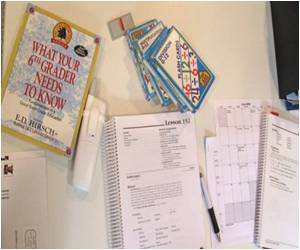Residents of Damascus pray that this week's Geneva II peace talks will produce a miracle that can silence the guns, exhausted by the devastating war that has asphyxiated Syria's capital.

And in the streets of the Old City and elsewhere, there is a rare semblance of normality.
Citizens go about their daily lives, youngsters take photos in front of the famed Ummayad mosque, and a vendor peddles souvenir pictures of President Bashar al-Assad and his ally Hassan Nasrallah, head of Lebanon's Hezbollah group.
But weariness shows on people's faces when they are asked about a solution to the conflict that has ravaged their country for nearly three years, killing more than 130,000 people, according to the Syrian Observatory for Human Rights NGO.
"Geneva? It would take a divine miracle for it to succeed," said Akram, who sells beans in the historic neighbourhood of Bab Touma.
"Neither one side nor the other wants to make concessions," he added, referring to the regime and to the opposition which voted on Saturday to attend the talks.
Advertisement
Akram's hopes are more simple.
Advertisement
"Let them talk for months, but I want to sleep in peace," the 35-year-old added, bemoaning the economic ruin the war has brought.
"We used to export wheat and flour. Now we're importing it from Lebanon and Iran."
Bab Touma, a majority Christian district, is now home to Syrians of all faiths who have come from across the war-torn country.
"I don't have much hope," said Maher, a Sunni Muslim medical engineering student who arrived five months ago from the northern town of Raqa, which is controlled by jihadists.
'Too much pain'
The talks "will end without results, particularly if the solution is imposed by the West," he added in particular reference to France and the United States, which back the opposition.
His girlfriend Maha, a timid brunette, is even more pessimistic.
"Syria will never go back to how it was. I don't think there will be reconciliation because there has been too much pain."
Omar, a baker in Bab Touma, left the Palestinian Yarmuk camp south of the city about a year ago.
He is delighted to have escaped the camp, which is mostly controlled by the opposition and has been under a regime siege that led to deaths from starvation among remaining residents.
"We are exhausted. We really need a miracle at Geneva II," said the 31-year-old former accountant, who sports a neatly trimmed beard.
"The two sides have to put aside their egos. If not, peace is impossible," he added, as he prepared "manoushe" flatbreads.
While many Damascus residents want nothing more than a return to normal life, others trumpet the regime line.
"We hope for victory for us, for our president!" shouted one passer-by in the central Marjeh neighbourhood of the capital, where many displaced families now live in budget hotels.
"Everything will be over when the terrorists leave the country," said Amjad, another former Yarmuk resident, echoing the regime term for the rebels.
Others questioned the role of the National Coalition, which is based in Turkey and is due to represent the opposition at the peace talks.
"Who are our leaders going to talk to?" asked Malek, in the working-class district of Sarouja, near Marjeh.
"The Coalition doesn't represent anything and the (rebels) are completely divided, so why should we negotiate with them?"
Hussam, a drama student having a drink in a pub in the upscale Rawda neighbourhood, will be watching the talks closely.
"If I don't feel like anything is happening after the conference, I'm going to leave Syria," he said.
Source-AFP









